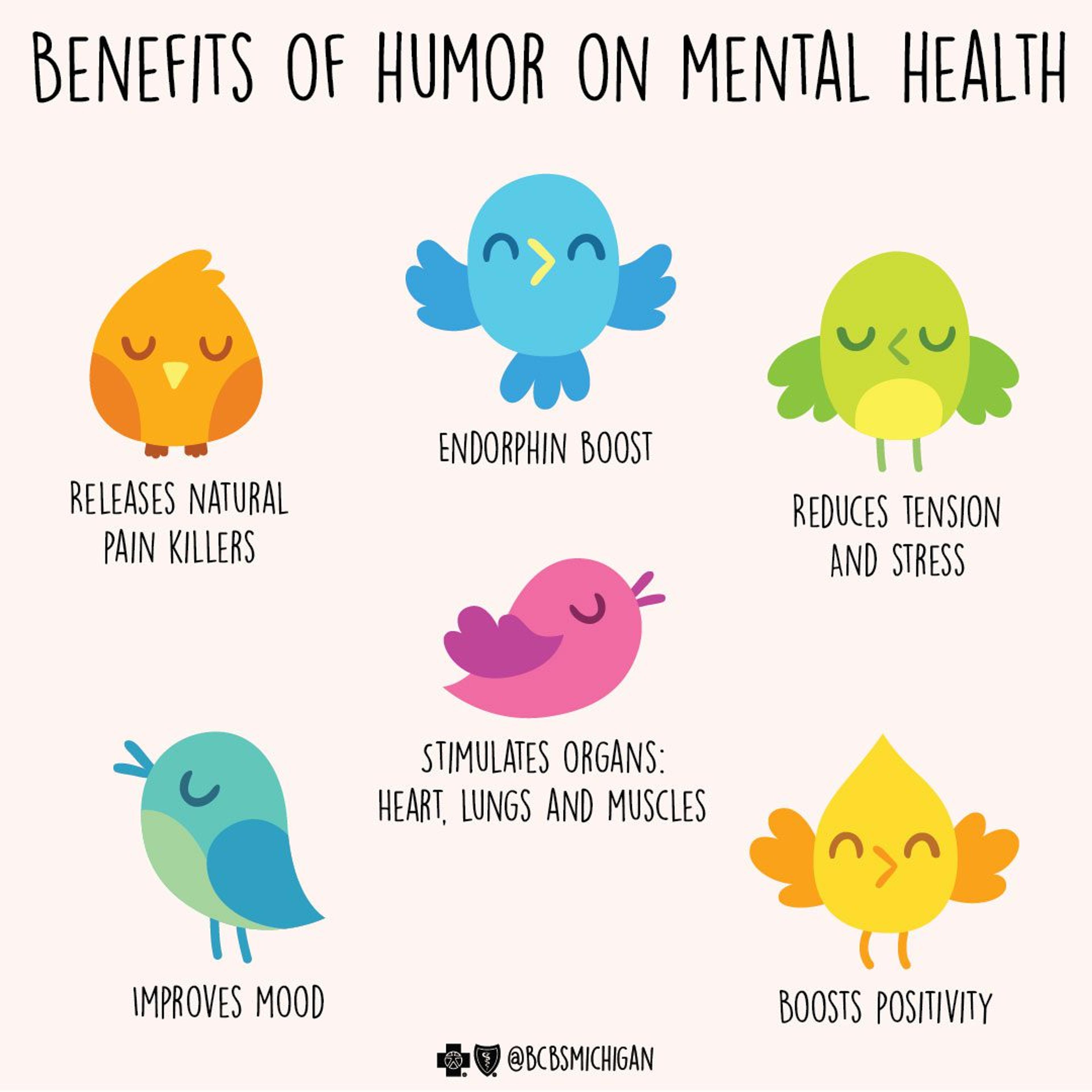Why Laughing is Good for You
Shandra Martinez
| 3 min read

When was the last time you had a really good belly laugh? A good guffaw, a thigh-slapping chuckle, a laugh so long it had you wiping away tears and feeling a good kind of tired when it was over? If it’s been awhile, what are you waiting for? Laughing has physical and mental benefits and is an easy way to boost your well-being. Let’s explore the reasons why laughing is so good for you.
The physical act of laughing is good for your body, research has shown. This could mean giggling at a TV show, laughing while watching a comedian, or just enjoying funny videos on Facebook or TikTok. But when you share laughter with family or good friends, that’s when even more benefits come into play.

Short-term benefits of laughing
Laughter has both long-term and short-term benefits on mental and physical health. The Mayo Clinic has outlined some of the immediate benefits people get from laughing. These include:
Stress relief. Laughing is a stress-reliever. It can relax muscles and increase blood circulation in the body, which in turn can lessen the physical feelings of stress.
Good for your internal organs. It turns out, laughing is good for your lungs. And your heart and other muscles in your body. That’s because when you laugh, you inhale more, increasing your body’s concentration of oxygen. This results in your brain releasing more feel-good endorphins.
A good roller coaster. Laughter acts a bit like a physical roller coaster for your body. It spikes your heart rate and even your blood pressure, then brings them back down into a less-stress zone. This leaves you feeling relaxed.
Long-term benefits of laughing
Some perks stay with you long after the laughter has ended. Did you know that laughing regularly can even help improve your immune system? Being in a positive frame of mind – like the one you’re in when you find something funny – can release certain neuropeptides in your body that not only act as a stress-reliever, but can help keep more serious health issues away. In this way, laughter and being in a positive mood is an immunity-booster. Other long-term benefits include:
Pain reducer. Research has shown laughter can induce the body to produce a natural form of painkillers. This means laughter may ease bodily pain.
Self-esteem boost. Many people report feeling better – and feeling better about themselves – after laughing.
Coping mechanism. Some people laugh in tough or tense situations. It acts as a stress-reliever in the short-term, but long-term it can help people cope with difficult situations. If they are going through these issues with another person, laughing about something can help people bond on a deeper level.
Social connection. Sure, you can laugh at things by yourself, but sharing that experience helps you forge stronger connections. According to information shared by The Cleveland Clinic, laughing with someone else creates ties in your relationship. It could be an instance where you laugh at the same joke, or you’re relating a funny story. If you’re new friends, it can open the door to a real connection. If you’re laughing with long-term friends, it just adds a deeper layer to your relationship. Either way, it builds a sense of community that has a long-lasting impact.
Related:
Photo credit: Getty Images





